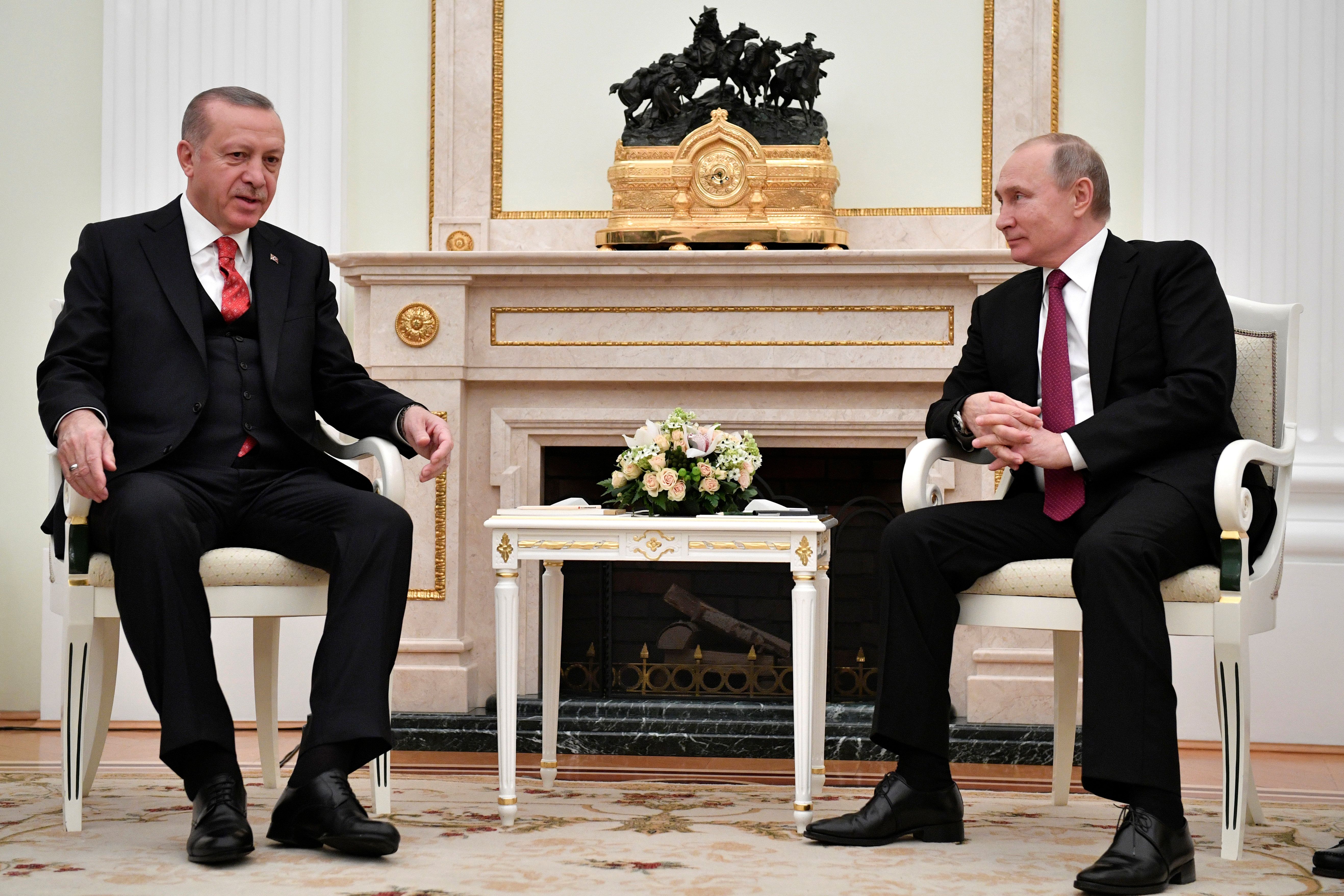Syria's new kingmaker – As a shaky US-brokered Turkish ceasefire in northern Syria entered its final hours on Tuesday, Turkish President Recep Tayyip Erdogan and Russian President Vladimir Putin agreed on a plan for northern Syria. Russia will now work with Turkey to ensure the removal of Kurdish forces from the 22-mile deep "safe zone" that Turkey won in its negotiation with the (departing) US five days ago. This is a big win for Putin, who, by virtue of his backing for Syrian despot Bashar al-Assad, is now the decisive figure in what happens in the region. Turkey also continues to make out pretty well, as we've written recently. But it is a huge loss for the perpetually luckless Kurds, who will be forced to leave a huge swathe of their homeland. They will also now need to depend chiefly on Bashar al-Assad and Vladimir Putin. Whether that's better or worse than relying on the fickle United States remains to be seen.
Rising chances of a UK election – Boris Johnson has his Brexit deal. Sort of. In a landmark vote on Tuesday, the House of Commons voted 329-299 in favor of the UK prime minister's EU withdrawal agreement on its second reading in Parliament. In classic Brexit fashion, that's not the end of the story. Parliament also rejected the PM's plan to ram through a final vote by Friday, all but scuppering Johnson's bid to ensure that the UK exits the EU on October 31 as promised. With the EU indicating it will extend the Brexit deadline yet again, possibly through the end of January, Johnson now faces a fateful choice: He can accept the delay and try to get the final bill passed after Parliament has had time to scrutinize it. Or he could roll the dice and call a snap election. The latter option could be a tempting gamble for Johnson: it would allow him to campaign as the man standing up to pro-Remain MPs who are bent on thwarting the will of the people on Brexit, try to win a clear endorsement from voters for his deal, and take advantage of Jeremy Corbyn's weakness as Labour leader to try to secure a stronger governing mandate for the next five years. So, Boris, you feeling lucky?
Bibi out, Gantz in—Israel's Prime Minister Benjamin "Bibi" Netanyahu has failed to form a government for the second time this year, and President Reuven Rivlin will now tap his rival, the Blue and White party's Benny Gantz, to take a shot at forming a majority coalition in the Knesset, Israel's parliament. Gantz will have 28 days to pull it off. If he can't – and his path to a majority is very difficult – Israelis could soon head to their third election in just 12 months, a scenario most are loath to contemplate. One alternative to that would be a unity government in which Gantz and Netanyahu share power. But Gantz is firm: he says he won't serve with the Likud party so long as Netanyahu, who's facing corruption charges, is at its helm.
What We're Ignoring:
Mauricio Macri's crowd size – On Sunday, Argentines go to the polls for a first round of presidential voting, and incumbent President Mauricio Macri is a huge underdog in the race against Peronist party leader Alberto Fernandez. Still, last weekend about 300,000 people turned out for a Macri rally in Buenos Aires. We are ignoring this last gasp of momentum for Macri, because although he still has the support of many urban voters frightened by the idea of a return to power of left-populist Cristina Fernandez de Kirchner, the opposition candidate for vice president, the nationwide vote is still likely to be decided by economic conditions across the country. Those are bad, and don't appear to be improving.
